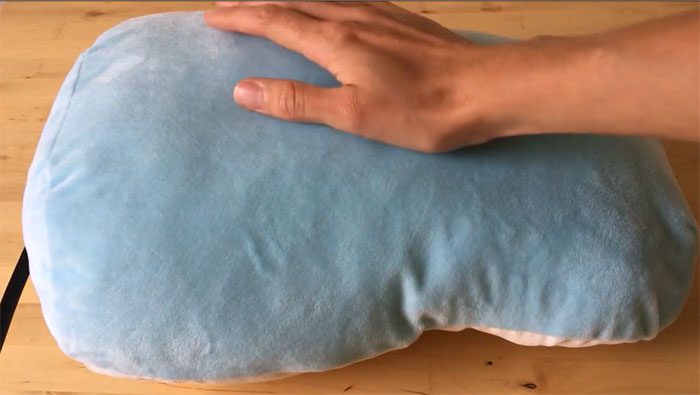Huggers tend to breathe slowly to synchronize with the pillow’s breathing rhythm, which helps them feel more relaxed.
A research team led by roboticist Alice Haynes at the University of Bristol (UK) has developed five soft pillows that simulate the sensation of breathing. Their goal is to help users reduce anxiety and stress while hugging, as reported by New Atlas on March 11.
Designed to mimic the feeling of interacting with pets or other people, these devices recreate breathing rhythms, the sound of a cat purring, a combination of breathing and purring, and heartbeat sounds. The fifth pillow can emit a rainbow light.
In tests conducted with 24 students, the pillow that only breathes provided the most pleasant feeling when hugged. Based on this information, the research team created a larger version. The new device features a soft microfiber exterior, polyester filling, and an airbag in the middle. This airbag inflates and deflates rhythmically thanks to an external pump that users cannot hear or see.

The pillow that only breathes provides the most pleasant feeling when hugged.
In the next trial, experts induced feelings of anxiety in 129 other volunteers by asking them to solve a series of math problems aloud in front of each other. In the 8 minutes before the test began, 44 people just sat and did nothing, 40 others were guided to practice breathing through meditation, and the remaining 45 hugged the breathing pillow.
Based on questionnaires used to assess the anxiety levels of volunteers before and after the test, the experts found that the pillow-hugging and meditation groups were significantly less anxious compared to the group that did nothing. Researchers are still working to understand the exact mechanisms by which the breathing pillow helps reduce stress.
“Later, we conducted a study with 21 pillow-huggers and measured their breathing rates. The pillows also have different breathing rhythms,” Haynes said.
“We found that the breathing rhythm of the majority of participants partially or fully synchronized with the pillow’s breathing. Therefore, we believe that the reduction in anxiety is mainly due to the students slowing their breathing to match the rhythm of the hugging pillow. Slow breathing has been shown to affect the nervous system and reduce symptoms of stress and anxiety,” she added.
The new study was published in the journal PLOS ONE. The research team also plans to continue improving the breathing pillow for longer-term testing in households.



















































